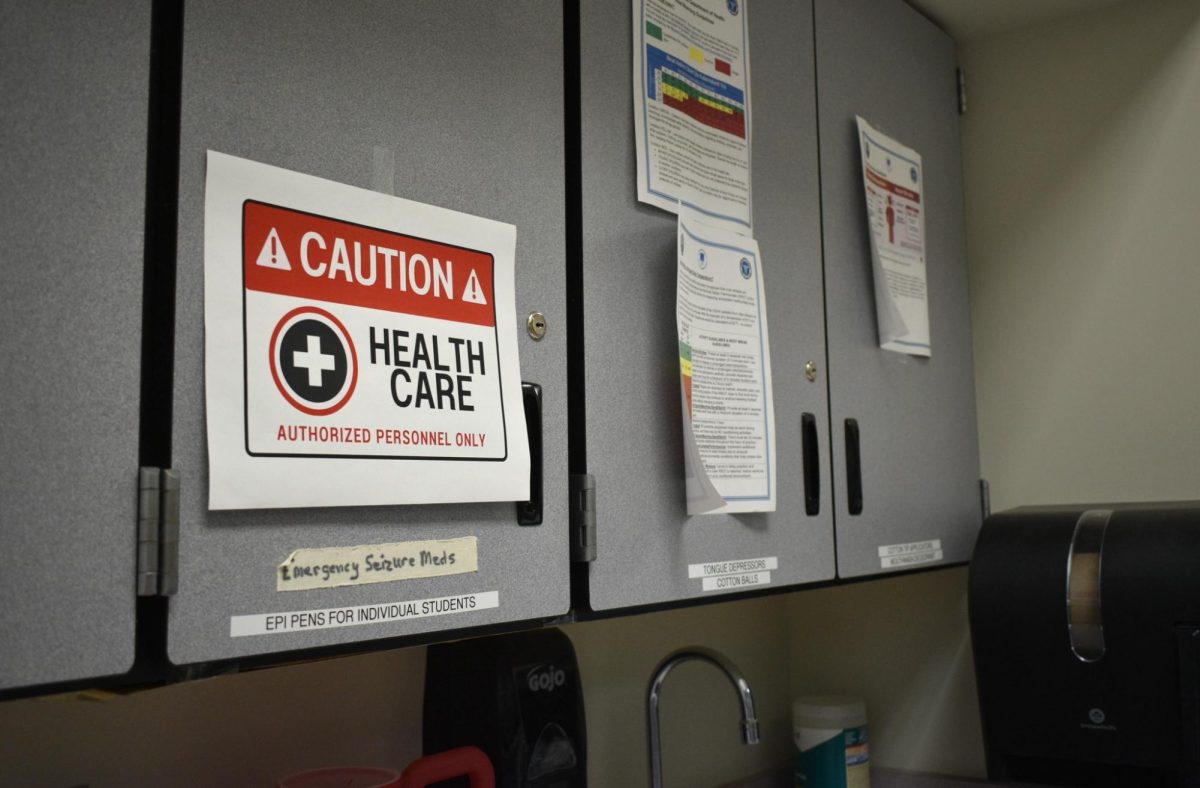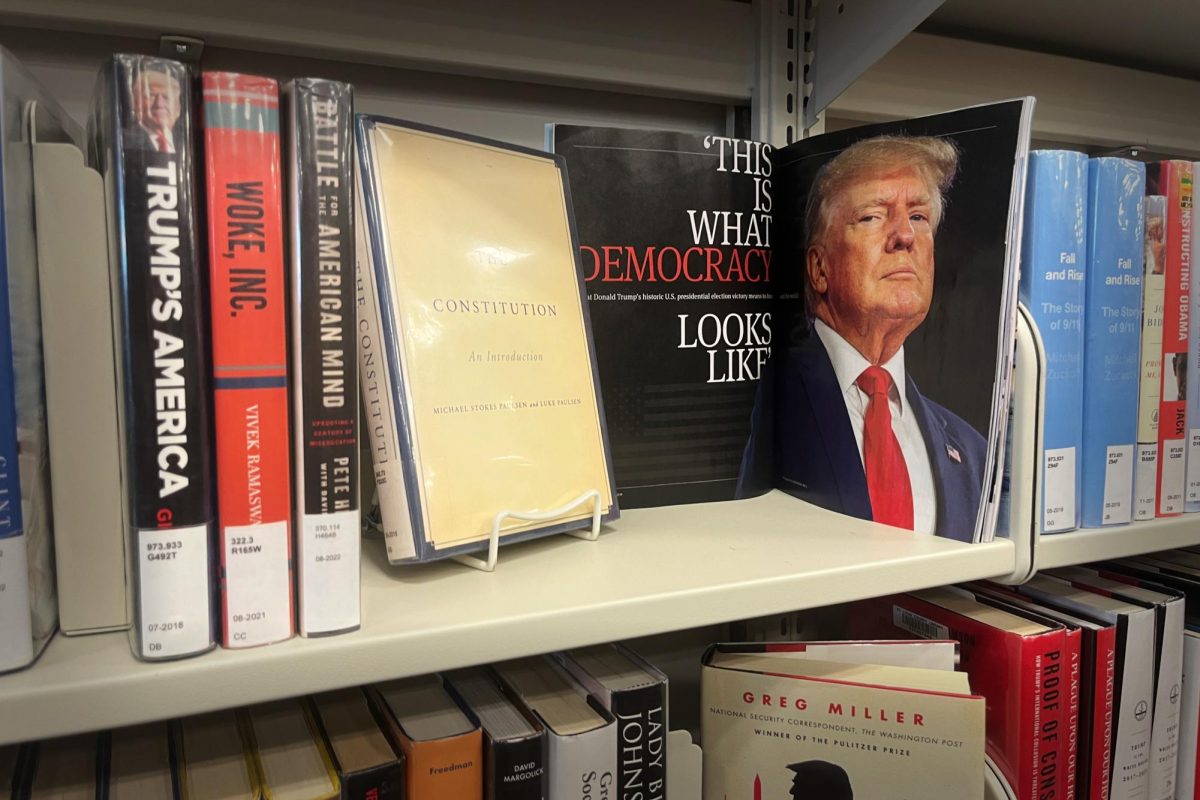You, the average Pathfinder reader, most plausibly have a regular and consistent access to the Internet. It is very likely that when you get back home, you open Facebook. When you need to research something for an essay, you probably use Google. And when you are bored and have free time, you most likely visit irrelevant and time-wasting websites, simply for a quick laugh or something to pass the time. What if I told you, though, that all of this was being monitored? If you happened to search anything that would be an illegal and/or dangerous practice, whether it’s a joke or not, it is highly possible that the U.S. Government would use that information to put you away to jail. In the world we live in with the ever-increasing popularity of the Internet, very little you do is private. Big brother is always watching.
This ability that Internet Providers possess to monitor your Internet activity was originally put into plan to make sure that you, the Internet user, were not downloading and/or sharing anything illegally. Of course, if the Internet service provider has the ability to monitor your downloading, what’s to say that they won’t monitor everything else? (Web searches, websites visited, et cetera). This information can then be sent to Government agencies, and used against you.
The privacy issues do not stop there. The Government, as of right now, very much wants to regulate the Internet more. Starting on Dec. 3, the world’s Government will be participating in a closed-door meeting in Dubai, and regulation of the Internet is on the queue. The International Telecommunication Union (ITU) is holding a conference from Dec. 3-14 to revise an old treaty in which the people will not have a vote. Some proposals would allow governments to justify the censorship of free speech, or even cut off Internet access in their respective countries. In other words, governments would have an unprecedented amount of power in the Internet.
The Internet accounts for 13 percent of America’s economic business output, stretching from sales to communication, from entertainment to retail. Not since Alexander Graham Bell invented the Telephone has an invention offered so much potential to benefit mankind.
Several authoritarian regimes reportedly propose to ban anonymity from the web, making it easier to find and arrest dissidents. Others have proposed moving the responsibilities of the private sector system that manages domain names and I.P. addresses to the United Nations.
The Internet is no place for the Government. When taking the values and ideas of personal safety to heart, people often support the regulation of the web. However, Internet anonymity is one of the last private and safe havens the citizens have left in this country. While Internet Providers have the ability to give your information to Government agencies, there still exists a certain amount of isolation and privacy. However, that could all change in this meeting. A Government-regulated Internet would change our country for the worse.
Disclaimer: The views and opinions expressed in this article are those of the authors and do not necessarily reflect the official position of the Parkway School District.

![Leaning on the podium, superintendent Melissa Schneider speaks to Parkway journalism students during a press conference. Schneider joined Parkway in July after working in the Thompson School District in Colorado. “My plan [to bond with students] is to get things on my calendar as much as possible. For example, being in [classes] is very special to me. I am trying to be opportunistic [meeting] kids [and] being in [the school] buildings. I have all the sports schedules and the fine arts schedules on my calendar, so that when I'm available, I can get to them,” Schneider said.](https://pwestpathfinder.com/wp-content/uploads/2025/09/IMG_5425-1200x943.jpeg)


![Red, white and blue, the American flag holds the values of our democracy. The fight that we once endured has returned, as student journalists and senior correspondents across the country are losing their voices due to government control. “[Are] the White House and [the] government limiting free speech [and] freedom of the press? Yes [they are],” chief communications officer of the Parkway School District and former journalist Elisa Tomich said.](https://pwestpathfinder.com/wp-content/uploads/2025/03/Untitled-design-14.jpg)
![A board in the Parkway West counseling department displays pennants of selective universities. With a wide range of students interested in attending, it’s important that these schools have clear priorities when deciding who to admit. “[Washington University] had the major that I wanted, psychology, philosophy, neuroscience. That's a holistic study of the brain, and [WashU is] the only college in the world that offers that. That's the main reason I wanted to go; I got into that program,” senior Dima Layth said.](https://pwestpathfinder.com/wp-content/uploads/2025/02/Flag-1.png)

![Within the U.S., the busiest shopping period of the year is Cyber Week, the time from Thanksgiving through Black Friday and Cyber Monday. This year, shoppers spent $13.3 billion on Cyber Monday, which is a 7.3% year-over-year increase from 2023. “When I was younger, I would always be out with my mom getting Christmas gifts or just shopping in general. Now, as she has gotten older, I've noticed [that almost] every day, I'll open the front door and there's three packages that my mom has ordered. Part of that is she just doesn't always have the time to go to a store for 30 minutes to an hour, but the other part is when she gets bored, she has easy access to [shopping],” junior Grace Garetson said.](https://pwestpathfinder.com/wp-content/uploads/2024/12/DSC_0249.JPG-1200x801.jpg)

![Senior Sally Peters stands in the history hallway, contemplating her choices in the 2024 United States and Missouri elections on Nov. 5. As a member of Diplomacy Club, Peters has discussed key candidates and issues in contemporary American politics. “[As students], we're starting to become adults. We're realizing how much the policies that are enforced and the laws that make it through the House and Senate are starting to affect us. [Opportunities such as] AP [U.S.Government] and Diplomacy Club [make elections feel] a lot more real,” Diplomacy Club vice president and senior Nidhisha Pejathaya said.](https://pwestpathfinder.com/wp-content/uploads/2024/10/Flag-1-1.png)
![Mounting school pressure can leave many students overworked and overstressed. Schools must give students the necessary resources to help assuage student mental health issues and prevent the development of serious crises. “The biggest thing [schools] can do [to protect student mental health] is offer more time [to do work], like a study hall, or offer more support from teachers so that students don't feel stressed out and can get help in areas that they need,” senior Bhavya Gupta said.](https://pwestpathfinder.com/wp-content/uploads/2024/09/unnamed-4.jpg)